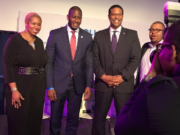Politico recently published an article bashing super PACs in the presidential race, so it might be helpful to offer some counterpoints to the assault. As with much of the language against super PACs, this latest piece is heavier on apocalyptic visions and appeals to emotion than facts or reason, but it does offer some specific examples worth mentioning:
“Romney’s super PAC alone spent $46 million before Memorial Day — more than all the outside groups combined in the past election cycle. This allowed Romney to outspend Rick Santorum’s grass-roots campaign by 400 percent during the pivotal Ohio primary — which Romney won by just 1 point.”
The funny thing about complaining about super PACs and Santorum is that his continued candidacy would have been improbable without independent support. Romney would have easily clinched the nomination, having a great deal more support from party elites than Santorum. As of March 31, 2012, Santorum had been able to raise $21 million in direct campaign contributions; Romney had raised $87 million by the same period. The disparity between their respective super PACs is similar, but Santorum’s super PAC enabled his message to reach more voters than he would have otherwise been able to communicate with.
The argument that Romney won by 1% in Ohio because of super PAC spending is a mere straw man; by that logic, if he won because of his advantage in independent spending, he would have won on his own campaign committee spending as well.
“…people writing million-dollar checks are not neutral observers without a financial stake in the policy debates of the day.”
This is an overbroad generalization. Yes, there are rent-seekers out there. But many campaign donors, including those with deep pockets, are funding candidates they agree with, rather than candidates they expect special favors from. No one has claimed Sheldon Adelson gave money to Gingrich’s super PAC because he thinks Gingrich is going to enable him to build casinos everywhere. He donated because he likes his political stance on Israel, a position that Gingrich had already taken and Adelson’s donation did not influence.
Secondly, if rent seeking is such a boon for businesses, why don’t corporations spend more money on politics? For-profit companies, large and small, only make up 17% of super PAC receipts, according to Demos. Corporations are also spending an infinitesimal amount of their own capital on politics.
Furthermore, research shows that industries that are more heavily regulated (such as banking) or government-dependent (such as the defense industry), tend to spend more money on politics than industries that enjoy relative autonomy, such as the tech sector. This suggests that most companies would rather have nothing to do with politics altogether, and only get involved when regulations, corporate taxes and other government interference are knocking at their door.
Rather than trying to regulate the wealthy into submission, (a forty-year-old practice that has only produced rising incumbency rates and discouraged less-wealthy activists from getting involved) might a better solution be to force them to compete with each other for influence, ensuring that no one of them has inordinate influence?
“As of mid-May, 15 organizations backed by these individuals had contributed more than $1 million each to Romney through his super PAC. Of those donors, 10 are hedge fund managers or investment holding companies that stand to profit handsomely from tax loopholes and financial deregulation that they are now actively promoting to Romney.”
Deregulation is not inherently good or bad, in and of itself, nor are profits. This sentence indicates the real nature of the complaint is, as usual, partisan: the authors just can’t tolerate the idea that a political perspective they don’t agree with is being advocated for in some particular case by independent spending.
“Now, super PACS are actively accepting unlimited contributions from individuals, unions and corporations. The vast majority of Americans have never had the influence of the powerful — but what was once an uneven playing field now resembles Mount Everest.”
Reading this you’d swear we live in some third world oligarchy. Last I checked, Americans still have the right to choose their leaders. Are the rich counting the ballots now too? Are we all poor, filthy serfs tending sheep and sleeping on dirt floors while the rich pilfer us and run roughshod over the Constitution?
Of course not. Americans are still involved in politics in a variety of ways. Many a politician dreads facing angry constituents at town hall meetings, as happened during the healthcare debate, and still more fear voter wrath at the polls. Voters are not mindless zombies who vote based on the last commercial they saw; they are still free to weigh the evidence, debate with friends and family, and make up their own minds about candidates.














